Palavras-chave:
Dança folclórica, Valores sociais, Prática pedagógica, Contexto, CulturaResumo
A reafirmação da identidade social é abordada a partir do fortalecimento dos valores sociais em um grupo de escolares de 7 anos no município de Nuevo Colón, no departamento de Boyacá, em uma instituição pública de ensino, com a dança folclórica colombiana como alternativa pedagógica do campo disciplinar da educação física. Este artigo relata uma pesquisa desenvolvida no contexto localizado, que visa identificar os valores vivenciados pelos escolares em torno da prática da dança, para promover relações positivas de afetividade como dispositivo de reconstrução do tecido social.
Os instrumentos utilizados para a coleta de informações centraram-se em gravações em vídeo, notas de campo e entrevistas semiestruturadas. Em torno da experiência, existem processos permanentes de reflexão e análise, que envolvem atitudes e comportamentos, através das interações estabelecidas na convivência. Esses procesos de reflexão geram a dinâmica em torno desse tipo de dança, projetando as crianças como atores, baseadas no reconhecimento de seus costumes e tradições, refletidas nos movimentos que a dança permite expressar. Os exercícios de desconstrução exigem profundo conhecimento e compreensão da estrutura da prática; facilitando o trânsito para a apropriação dos seus significados, na sua incorporação como mediadores da sua cultura nas famílias, na escola e na sua comunidade.
Downloads
Referências
De Sousa, B. (2012). Forum Justicia. Boaventura de Sousa Santos: “La entrada de las mujeres cambia las agendas”. Recuperado de http://www.forumjustica.com.br/es/boaventura-desousa-santos-la-entrada-de-las-mujeres-cambia-las-agendas.
De Sousa, B. (2013). Una Epistemología del Sur la reinvención del conocimiento y la emancipación social. México. Siglo Veintiuno Editores.
Kemmis, S. (1986). Introducción. En Cerda, H. (2011), Los Elementos de la Investigación. Bogotá, Colombia: Magisterio.
Lucio, R. (1989). Educación, Pedagogía, enseñanza y didáctica: diferencias y relaciones. Revista de la universidad de la Salle, (17), 35-46.
Martínez, M. (2004). ¿Qué significa educar en valores hoy? Educar en valores es crear condiciones pedagógicas y sociales. Bogotá. Colombia: Octaedro Editores. (pp. 17-43).
Magendzo, A. (1999, 18 de noviembre). Investigación y la Práctica Pedagógica en el Contexto de las Reformas Curriculares. Simposio Internacional de Investigadores en Educación. Recuperado de: https:// www.rmm.cl/index_sub2.php?id_contenido=2863&id_portal
Mejía, M. (2007). Tecnología, globalización y reconstrucción de la educación popular. Bogotá. Departamento Ecuménico de Investigaciones.
Packer, M. (2013). La ciencia de la Investigación Cualitativa. Bogotá: Universidad de los Andes.
Restrepo, B. (2011). Investigación Acción Pedagógica. Colombia: Universidad de Antioquia.
Samacá, I. (2015). La práctica pedagógica como lugar de legitimación del saber. Educación y Territorio, 5(8), 71-86.
Vygotsky, L. (1978). La zona de Desarrollo Próximo: una reconsideración de sus implicaciones para la enseñanza. Recuperado de: https://dialnet.unirioja.es/descarga/articulo/48359.pdf




